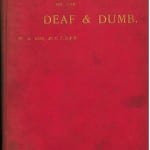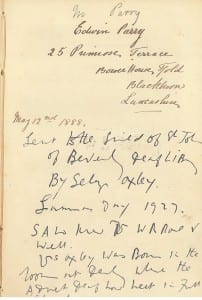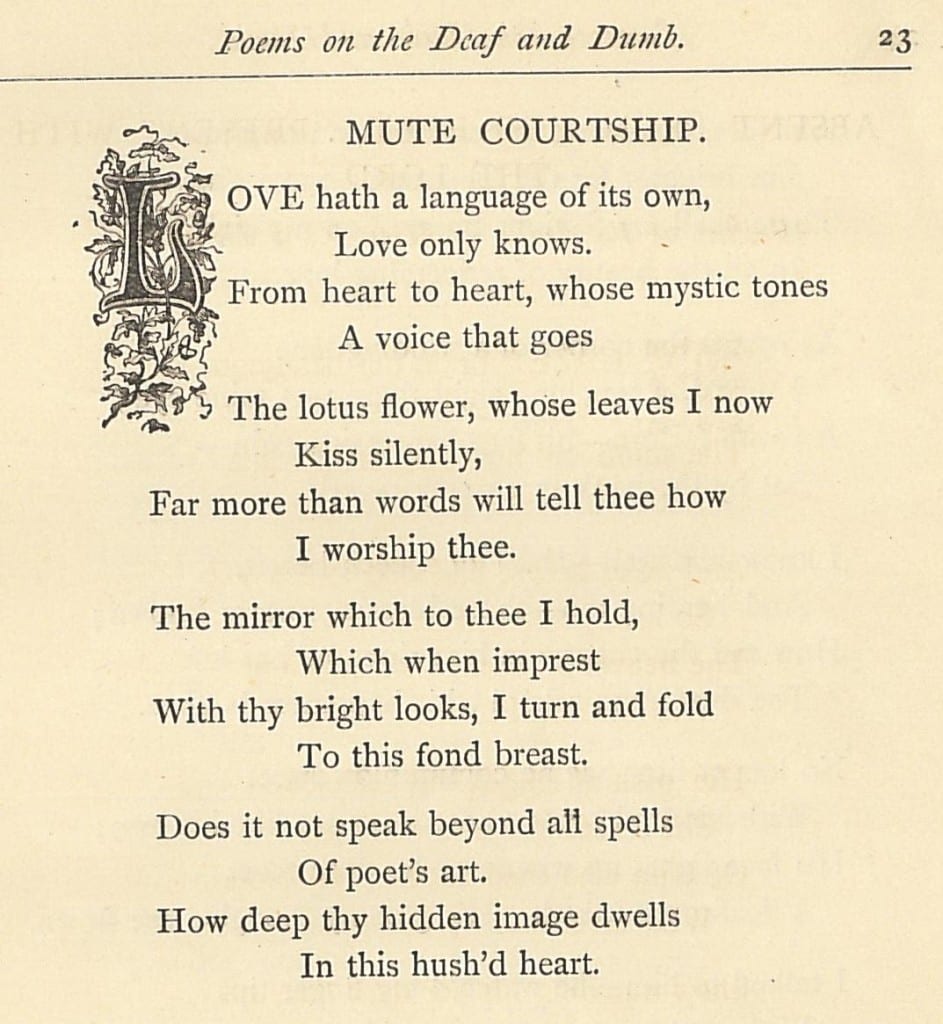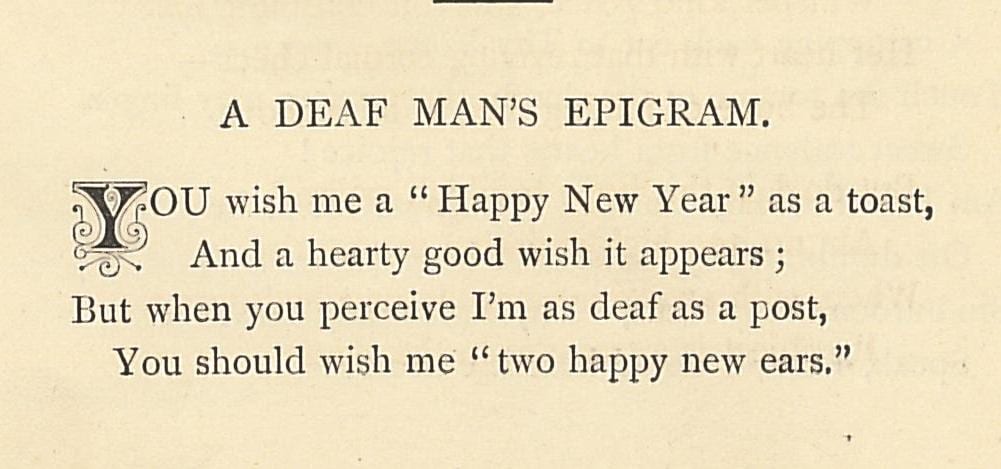“I gazed upon her beauteous form, As in death’s clasp it lay” – Poems on the Deaf and Dumb
By H Dominic W Stiles, on 22 April 2016
 Poems on the Deaf and Dumb was written, or rather compiled by William Robert Roe, and published in 1888.
Poems on the Deaf and Dumb was written, or rather compiled by William Robert Roe, and published in 1888.
Jennifer Esmail says that Roe’s book reprints American Deaf poetry without refering to the author’s nationalities, but not all of the poems are American. Roe must have scoured all the sources he could find, in order to fill his pages. The sources include poems by Eliza Cook, the Church of England Magazine, and the American Mrs Sigourney. Usually I stand back from direct comment on works which appear in the blog, and perhaps I am being unfair, but I have no hesitation in calling much (not all) of this collection, mawkish and sentimental! Judge for yourselves. The whole book is in the link above, and a few selections are below.
ABSENT FROM THE BODY. PRESENT WITH THE LORD.
Written at the death of Miss F., a Deaf Mute.
By Miss M.M.F.
I gazed upon her beauteous form,
As in death’s clasp it lay,
The smile still hovered on the lips
With which she passed away.
And n’er before had that sweet face
So lovely seemed to me;
The heavenly calm reflected there
Was beautiful to see.
Her wish at length was realised –
She’d seen the glorious face
Of Him who shed for her His blood,
Who saved her by his grace.
She’s watching for her dear ones now,
With others gone before;
And one who since has crossed the flood
And joined her on that shore.
Her unstopped ear shall catch the strain
That will our advent greet;
Her loosened tongue with ours shall join
In halleljahs sweet.
O, hasten, Lord, that meeting time,
We long to be with Thee;
To leave this world of grief and sin,
 One of our many copies was owned by Edwin Parry, 25 Primrose Terrace, Bower House, Blackburn, dated May 12nd [sic] 1888. In 1911 there was an Eliza Parry, aged 54, widow, described as deaf from aged 6 (circa 1863), though the 1861 census says she was deaf ‘from birth’. It seems her maiden name was Eliza Gladstone and that she married Edwin Parry in Blackburn in 1885. Eliza was born in Hunslet, Yorkshire, daughter to James and Jannet(t) Gladstone, who had moved to England from Roxburgh. We may question whether she had any formal education at all, other than at home, but it is possible. The Leeds Deaf Institute only opened in 1876, when she was an adult.
One of our many copies was owned by Edwin Parry, 25 Primrose Terrace, Bower House, Blackburn, dated May 12nd [sic] 1888. In 1911 there was an Eliza Parry, aged 54, widow, described as deaf from aged 6 (circa 1863), though the 1861 census says she was deaf ‘from birth’. It seems her maiden name was Eliza Gladstone and that she married Edwin Parry in Blackburn in 1885. Eliza was born in Hunslet, Yorkshire, daughter to James and Jannet(t) Gladstone, who had moved to England from Roxburgh. We may question whether she had any formal education at all, other than at home, but it is possible. The Leeds Deaf Institute only opened in 1876, when she was an adult.
In 1901 Eliza, already widowed, was working as a cotton winder, living with Margaret Walker, aged 67, and Jane Clara, aged 65, both deaf. I wonder if they used signs at work, or ‘meemawing’, a combination of mouthing and mime employed in noisy Lancashire Mills, which Les Dawson famously used with his characters Cissie and Ada. I have not been able to find Edwin on a quick look at the census records. Perhaps he was not deaf, though I suspect he may have been. It is also possible that, like his wife, he was not born in Lancashire. Hunslet was a town that had mills which wove flax, and presumably Eliza moved to Lancashire seeking work some time in the 1880s.
I think our Eliza Parry died in 1915. Do add anything you may discover in the comments below.
Esmail, Jennifer, Reading Victorian Deafness. 2013
The invalid’s hymn book [compiled by H. Kierman] with preface by H. White
1911 census Class: RG14; Piece: 25107
1901 census Class: RG13; Piece: 3915; Folio: 130; Page: 3
1891 census Class: RG12; Piece: 3416; Folio: 145; Page: 3; GSU roll: 6098526
1861 census Class: RG 9; Piece: 3357; Folio: 79; Page: 10; GSU roll: 543119
One Response to ““I gazed upon her beauteous form, As in death’s clasp it lay” – Poems on the Deaf and Dumb”
- 1
 Close
Close




Poetry of the past should not be judged according to our preferences. These poems may not be great literature, but they once moved people’s hearts, and they still do if you respect the old-fashioned language and the outdated world-view (everyone believing in Jesus etc.). Also, these mediocre poems definitely surpass much of the junk printed and praised as poetry in today’s newspapers, magazines and books!